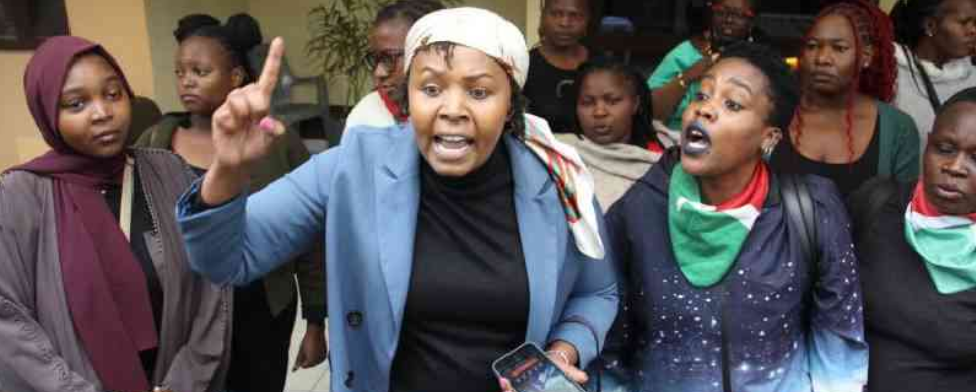Nairobi needs a strong broom, but must military take over?
- Irungu Houghton

- May 15, 2020
- 3 min read
Updated: Sep 23, 2020

Senator Kipchumba Murkomen sparked off an important conversation this week. He controversially alleged that with the recent appointments, the Nairobi County Government has been turned into a military barrack and that soon, other county governments may follow suit. To illuminate the future of Nairobi, the conversation must focus on the values and approaches the new appointments will carry into their office not just their identities and backgrounds.
Following the approval by the Kenya Defence Council, seven military officers joined Major General Mohamed Abdalla Badi to lead the Nairobi Metropolitan Services this week. The appointment of additional military officers to run a civil administration without an elected leader among them was likely to cause acute indigestion.
Despite at least three attempted military coups, the running of Nairobi city has been in the hands of an elected administration for the last six decades. It is a testimony to the strength of our democracy that Kenya has never been run by a military administration. It is also worth noting that this week’s discussion is being held without any fear of persecution or intimidation.
Africa still holds the world record for the most military coups. Since 1961, there have been at least 206 military coups with 45 per cent of them being successful. This number is twice more than Latin America. With last year’s popular uprising and military coup, neighbouring Sudan has had 15 attempts and 5 military governments. Military regimes have largely been blamed for Africa’s political instability, corruption and stunted democracies.
Military regimes experts might characterise the current Nairobi administration as a “moderator” state. Moderator states forcefully take over or are appointed to clean up the mess of elected administrations. The appointment of Mohamed Abdalla Badi as Director-General was preceded by a perfect swamp of corruption, failed services and public disappointment with the elected Jubilee administration. Rather than declare a vacancy and institute fresh elections for a new Governor, State House elected to follow this route.
Africa has had several examples of moderator regimes. Most of them soon became embroiled in rights abuses, dismantled weak democratic institutions and concentrated on keeping themselves in office. Not all left a bad legacy. Burkinabe Thomas Sankara remains the most inspirational of Africa’s military leaders.
In just four years, he distinguished his leadership as one that was disinterested in self-enrichment, was committed to national self-sufficiency, gender equality and an ability to be with and listen to ordinary people. His determination to create a new man and woman led his administration to rename Upper Volta to Burkina Faso, the land of upright people.
At least Kshs 7 billion and close to 8,000 officers are being allocated to Badi’s team. The Director-General has declared his intention to disrupt the city’s rubbish cartels and gazette solid waste dumpsites. The Service plans to increase public water through new boreholes and bowsers, fix and maintain 100 kilometers of roads and 35,000 streetlights and clean piles of rubbish, fumigate streets, residents estates and Nairobi’s biggest open-air markets. Funding is being allocated to convert the Mbagathi Hospital maternity ward into a COVID-19 isolation ward and provide personal protection equipment for county staff.
That the county needs a strong broom to rid it of the sleaze of patronage, predatory procurement and lawlessness is without question. The question is whether the Badi team will also be able to transform the weak appetite for democratic governance and values among key elite groups and the general public.
Poor informed public participation, a lack of transparency in planning, budgeting and procurement processes and respect for human rights is at the center of Nairobi’s crisis. Successive generations of politicians are primarily responsible for this. This includes some of the voices on both sides of the debate this week. They have failed to lead by role-modelling consensus-building and leadership integrity. They have neglected to deepen civic intelligence and the ability of the public to understand and participate in policy choices and trade-offs. All this is a pre-condition for effective and sustainable democracies.
Whether the military officers alongside their civilian colleagues can do this before 2022 remains to be seen. If Nairobi couldn’t be run as a swamp, it will not be run as a military barracks. It could be run as an effective democracy. This would give us the greatest assurance that all the bold efforts to drain the swamp will not end, as the leadership changes, in a couple of years from now.
This article was first published in the Saturday Standard, 9 May 2020




Comments